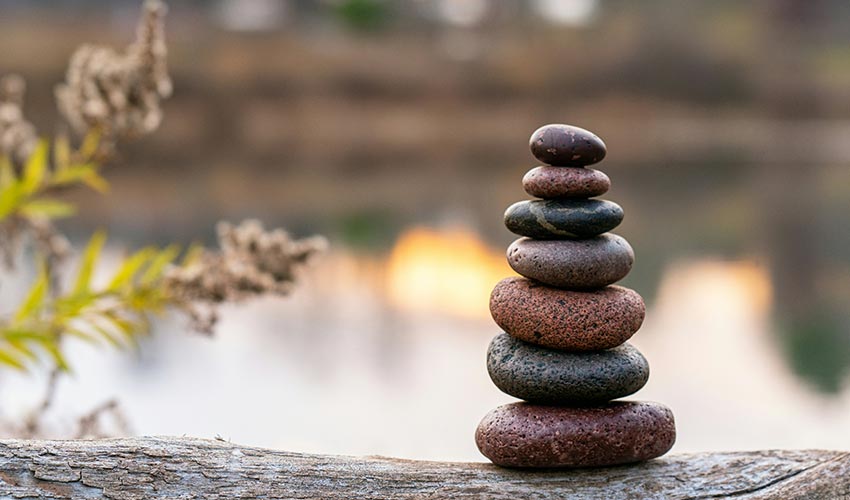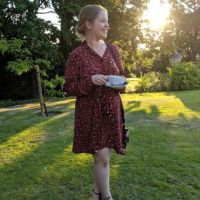Embracing ‘Alternative’ Lifestyles: The Benefits Beyond the Conventional
Conformity often reigns supreme in our modern society, however alternative ways of living stand as beacons of individuality and innovation. From minimalist lifestyles to off-grid living, embracing alternatives offers a myriad of benefits that extend far beyond the boundaries of conventionality. These ‘unconventional’ choices not only challenge societal norms but also foster personal growth, environmental sustainability, and a deeper connection to oneself and the world.
This article will not be about what is the ‘right’ way to live, and what is the ‘wrong’ way. As long as you’re not hurting anyone else I don’t believe there is any ONE specific way to live life. We are all so deeply different, and similar in ways also, but ultimately we are all human beings living our lives based on what feels right to us as individuals. This article will merely highlight the various ways of what constitutes the word, alternative. It’s important to also highlight here that words are labels, however labels help some to understand certain things or ways of life, and that’s ok. And my expression in this article can be viewed as simply my own opinion, and that’s ok too. So I use the word ‘alternative’ loosely, to highlight what I, and society considers to be ‘alternative’. So in pure Georgia fashion, let’s get to my lists, I mean article about alternative living.

What Qualifies as ‘Alternative’ Living?
"Alternative lifestyle" is a broad term that encompasses a diverse range of choices, practices, and beliefs that deviate from mainstream cultural norms and expectations. While there is no single definition of what constitutes an alternative lifestyle, these lifestyles often involve unconventional approaches to aspects of life such as housing, work, relationships, and personal values. Here are some examples of alternative lifestyles:
Minimalism:
Minimalism emphasises living with fewer material possessions and simplifying one's life to focus on experiences, relationships, and personal growth.
Off-Grid Living:
Off-grid living involves disconnecting from public utilities such as electricity, water, and sewage systems and relying on self-sufficient and sustainable methods for energy, water, and waste management.
Tiny House Living:
Tiny house living involves downsizing to a small, often mobile, dwelling typically ranging from 100 to 400 square feet in size. It emphasises simplicity, affordability, and minimal environmental impact.
Nomadic Living:
Nomadic living involves adopting a lifestyle of constant travel and exploration, often living in a camper van, RV, or other mobile dwelling, and embracing a minimalist and location-independent approach to life and work.
Eco-Village Living:
Eco-villages are intentional communities that prioritise sustainability, cooperation, and self-sufficiency. Residents often live in close proximity, sharing resources, responsibilities, and a commitment to environmental stewardship.
Communal Living:
Communal living involves sharing living space, resources, and responsibilities with a group of like-minded individuals. It emphasises cooperation, community, and shared values.
Alternative Work Models:
Alternative work models include freelancing, remote work, gig economy jobs, and other non-traditional forms of employment that offer flexibility, autonomy, and independence.
Vegetarianism/Veganism:
Choosing a vegetarian or vegan lifestyle involves abstaining from the consumption of animal products for ethical, environmental, or health reasons.
Polyamory:
Polyamory is the practice of engaging in consensual romantic or sexual relationships with multiple partners simultaneously, with the knowledge and consent of all parties involved.
Spiritual or Religious Practices:
Alternative lifestyles may also involve embracing spiritual or religious beliefs and practices that differ from mainstream traditions, such as meditation, yoga, mindfulness, or adherence to alternative spiritual paths.
It's important to note that alternative lifestyles are diverse and can vary widely based on individual preferences, values, and circumstances. What qualifies as an alternative lifestyle for one person may not necessarily be considered alternative for another. Ultimately, alternative lifestyles are about challenging convention, embracing authenticity, and living in alignment with one's true values and beliefs.

Why ‘Alternative’ Can Be Beneficial
Here's why choosing alternative ways of living can be profoundly beneficial:
Freedom from Consumerism:
Alternative lifestyles often emphasise minimalism and intentional living, encouraging individuals to break free from the shackles of consumerism. By prioritising experiences over possessions, people can redirect their focus towards what truly matters, leading to greater fulfilment and contentment.
Simplified Living:
Many alternative lifestyles prioritise simplicity and minimalism, focusing on experiences over material possessions. By reducing clutter and excess, individuals can streamline their lives, reduce stress, and cultivate a greater sense of peace and contentment.
Authenticity & Self-Expression:
Above all, choosing an alternative way of life allows individuals to express their authentic selves and live in alignment with their true values and beliefs. By embracing uniqueness and diversity, people can celebrate their individuality and contribute to a more vibrant and inclusive society.
Environmental Sustainability:
Many alternative lifestyles promote eco-friendly practices such as zero-waste living, sustainable farming, and renewable energy use. By minimising their ecological footprint, individuals can contribute to the preservation of the planet for future generations. These choices not only benefit the environment but also inspire others to adopt more sustainable habits.
Financial Independence:
Choosing alternative ways of living can lead to significant cost savings. Whether it's through tiny house living, communal living arrangements, or self-sufficient homesteading, people can reduce their expenses and achieve greater financial freedom. This liberation from financial burdens provides the flexibility to pursue passions, travel, or invest in personal growth.
Embracing Creativity & Innovation:
Alternative lifestyles often require thinking outside the box and finding creative solutions to everyday challenges. Whether it's repurposing materials for DIY projects or devising innovative methods for sustainable living, embracing alternatives nurtures a spirit of creativity and innovation. These skills are not only practical but also enriching, fostering a sense of accomplishment and self-reliance.
Community & Connection:
Many alternative lifestyles emphasise community and collaboration, fostering deep connections with like-minded individuals. Whether it's through intentional communities, co-housing projects, or digital nomad networks, people find support, camaraderie, and shared values in their chosen communities. These connections provide a sense of belonging and support network that is often lacking in conventional living arrangements.
Personal Growth & Fulfilment:
Alternative lifestyles often challenge individuals to step out of their comfort zones and embrace new experiences. Whether it's learning new skills, adapting to unconventional living arrangements, or facing the uncertainties of self-sufficiency, these challenges foster personal growth and resilience. By pushing past limitations and embracing change, individuals often find deeper fulfilment and a greater sense of purpose.
Resilience in Uncertain Times:
In an increasingly volatile and uncertain world, alternative lifestyles offer a degree of resilience and self-sufficiency. Whether it's through growing one's own food, generating renewable energy, or developing essential skills for off-grid living, individuals can better weather economic downturns, natural disasters, or societal disruptions. This resilience provides a sense of security and empowerment in the face of uncertainty.

Alternative Medicine
Alternative medicine, also known as complementary or integrative medicine, encompasses a diverse range of practices, treatments, and therapies that fall outside the realm of conventional Western medicine. While alternative medicine approaches vary widely, they share several potential benefits that can complement or enhance traditional medical care. Here are some of the benefits of alternative medicine:
Holistic Approach:
Alternative medicine often takes a holistic approach to health, considering the interconnectedness of the mind, body, and spirit. Rather than simply treating symptoms, alternative therapies aim to address the underlying causes of illness, promoting overall wellness and balance.
Personalised Care:
Alternative medicine practices often emphasise individualised treatment plans tailored to each person's unique needs and preferences. Practitioners take into account factors such as lifestyle, diet, emotional well-being, and environmental influences to develop comprehensive approaches to health and healing.
Fewer Side Effects:
Many alternative therapies use natural remedies and gentle interventions, resulting in fewer adverse side effects compared to some conventional medical treatments. This can be particularly beneficial for individuals who are sensitive to medications or who prefer more gentle, non-invasive approaches to healing.
Empowerment & Self-Care:
Alternative medicine empowers individuals to take an active role in their own health and well-being. Through practices such as acupuncture, yoga, meditation, and dietary changes, people can learn self-care techniques that promote resilience, reduce stress, and enhance overall quality of life.
Complementary to Conventional Medicine:
Alternative medicine can complement traditional medical treatments, providing additional options for managing symptoms, promoting recovery, and improving quality of life. Integrative approaches that combine conventional and alternative therapies may offer synergistic benefits, enhancing the overall effectiveness of treatment.
Focus on Prevention:
Many alternative medicine practices emphasise preventive care and lifestyle interventions aimed at reducing the risk of illness and promoting long-term health. By addressing underlying imbalances and supporting the body's natural healing processes, alternative therapies can help prevent chronic diseases and optimise wellness.
Cultural Diversity & Tradition:
Alternative medicine encompasses a rich diversity of cultural traditions and healing practices from around the world. These ancient wisdom traditions offer valuable insights into the interconnectedness of health and nature, as well as the importance of honouring individual differences and cultural perspectives.
Treatment of Chronic Conditions:
Alternative medicine approaches may be particularly effective for managing chronic conditions that do not respond well to conventional medical treatments. Modalities such as acupuncture, herbal medicine, chiropractic care, and mind-body therapies can offer relief from pain, improve function, and enhance quality of life for individuals living with chronic illnesses.
Focus on Well-Being:
Beyond treating specific health conditions, alternative medicine often emphasises the promotion of overall well-being and vitality. Practices such as massage therapy, aromatherapy, and energy healing can help reduce stress, enhance relaxation, and improve mood, contributing to a greater sense of balance and vitality.
Mind-Body Connection:
Many alternative medicine practices recognise the intimate connection between the mind and body, and the role that mental and emotional factors play in health and healing. Therapies such as meditation, biofeedback, and guided imagery harness the power of the mind to promote healing, reduce pain, and enhance resilience.
Alternative medicine offers a wide range of potential benefits that can complement and enhance conventional medical care. From holistic approaches to personalised treatments, natural remedies to mind-body interventions, alternative therapies empower individuals to take control of their health and well-being in meaningful and transformative ways.

Alternative Mindset
A spiritual mindset encompasses a deep sense of connection to something greater than oneself, whether it be a higher power, the universe, nature, or one's own inner wisdom. Cultivating a spiritual mindset can have profound effects on mental, emotional, and physical well-being, as well as on one's overall outlook on life. Here are some of the benefits of adopting a spiritual mindset:
Inner Peace & Serenity:
A spiritual mindset often brings a sense of inner peace and tranquillity, even in the midst of life's challenges. By cultivating a connection to something greater than oneself, individuals can find solace and comfort in the midst of uncertainty, turmoil, and adversity.
Meaning & Purpose:
Spirituality provides a framework for understanding the deeper meaning and purpose of life. By exploring questions of existence, identity, and the nature of reality, individuals can find greater clarity, direction, and fulfilment in their lives.
Resilience & Coping:
Spirituality can provide a source of strength and resilience during difficult times. Belief in a higher power, faith in the divine order of the universe, or a sense of connection to a greater purpose can help individuals navigate challenges, overcome obstacles, and bounce back from adversity.
Emotional Well-Being:
A spiritual mindset can enhance emotional well-being by fostering acceptance, forgiveness, and compassion. Practices such as meditation, prayer, and mindfulness can help individuals cultivate greater self-awareness, regulate their emotions, and cultivate a sense of inner harmony and balance.
Connection & Unity:
Spirituality emphasises the interconnectedness of all beings and the underlying unity of existence. By recognising the inherent worth and dignity of every individual, individuals can cultivate empathy, compassion, and a sense of shared humanity, fostering greater harmony and cooperation in relationships and communities.
Gratitude & Appreciation:
Spiritual practices often cultivate a sense of gratitude and appreciation for the blessings of life. By focusing on the present moment and acknowledging the abundance that surrounds them, individuals can cultivate a greater sense of contentment, joy, and fulfilment in their lives.
Healing & Wholeness:
Spirituality can support healing and wholeness on all levels—physical, emotional, mental, and spiritual. By addressing the root causes of illness and imbalance, individuals can tap into their innate healing potential and experience greater wellness and vitality.
Empowerment & Self-Discovery:
Spirituality encourages individuals to explore their innermost selves, uncover their deepest truths, and embrace their authentic nature. By connecting with their inner wisdom, intuition, and higher guidance, individuals can cultivate greater self-awareness, self-acceptance, and self-empowerment.
Transcendence & Growth:
A spiritual mindset invites individuals to transcend the limitations of the ego and expand their consciousness beyond the material realm. By embracing the journey of self-discovery and personal growth, individuals can evolve spiritually, intellectually, and emotionally, leading to greater wisdom, insight, and enlightenment.
Connection to Something Greater:
Ultimately, a spiritual mindset fosters a deep sense of connection to something greater than oneself—a higher power, the universe, or the divine. This sense of connection provides a source of comfort, inspiration, and guidance, guiding individuals on their journey of self-discovery, transformation, and fulfilment.
Adopting a spiritual mindset can have profound effects on every aspect of one's life, from enhancing well-being and resilience to fostering greater meaning, purpose, and connection. By cultivating a deeper sense of spirituality, individuals can experience greater peace, joy, and fulfilment, and lead lives that are more aligned with their truest selves and highest aspirations.

Why I Choose an ‘Alternative’ Way of Living
I am very aware that to others, I may live ‘alternatively’, and while that may be true, I personally couldn’t see any other option other than to look within myself. Nothing else was working. I had repeated the same emotional patterns and behaviours and fearful thinking since I was a teenager (I am now in my 30’s!) so I had to ask myself, what is no longer working and what do I really want, AND, how do I get there?
There is absolutely no one size fits all in any healing journey, or actually just in life in general in what works for us and what doesn’t, but I was beginning to see what wasn’t. For me personally, antidepressants just weren’t working. Having small bouts here and there of various therapies wasn’t working. It would work for a short while of course, however I would always gravitate to the same emotional responses and old habits and patterns that kept me stuck in a painful loop, that I felt I would never overcome as I was never really getting to any root causes, just masking the symptoms.
I was trying to rid myself of the pain I was feeling and experiencing as a result of my fearful habits and thought patterns. I was trying to run away from a particular feeling and/or thought because they scared me and I didn’t feel “in control” of them. But my curiosity to not remain that way for any longer led me to particular people, then particular books, podcasts, articles, bodies of research, therapies, medicines etc. I am so grateful I followed those curious breadcrumbs because slowly, over time, I have built myself from the ground up. The knowledge I have acquired about mental health, physical health, spiritual health even, they have all aided me in the current version of me that I am today.
I am in no way perfect, I never will be. I don’t believe life to be about the pursuit of perfection, I’ve tried that too and to no surprise, this didn’t work. So instead I have embraced my pursuit of ‘alternative’ measures and I have come to accept that I love alternative medicines such as Homeopathy, it gives me a great deal of involvement with my health and wellness, and I LOVE reading books by ‘alternative’ authors such as Wayne Dyer, Dr Joe Dispenza, Michael Singer, Rebecca Cambell, Louise Hay, Rhonda Byrne, I could go on, but these types of books expand my consciousness and enrich my experiences. I love meditation and contemplation, it gifts me a pause in my day and reminds me to breathe consciously, to remember what a gift life is and to not take that moment or that day for granted.
Whatever the things are that you may be already doing that are considered ‘alternative’, or even the things you’d like to do that you perhaps put off because you don’t want to be labelled ‘alternative’, if they enrich your being, or WILL enrich your being, why would you NOT do them? We don’t live our lives for other people's approval (there’s a whole article in that even!) so let’s get to a place within ourselves of total acceptance of what we love and what brings us joy, just for the sheer fact that this is our life. We get to live it on our terms mentally, so let us choose wisely, our mindset, and embrace that ‘alternative’ thing (which doesn't even become an 'alternative' thing to you eventually, but more of a natural thing) that makes up a part of who we are.

Choosing alternative ways of living is not just about breaking away from the mainstream; it's about embracing a lifestyle that aligns with one's values, priorities, and aspirations. Whether it's pursuing simplicity, sustainability, or self-sufficiency, alternative lifestyles offer a plethora of benefits that transcend the boundaries of conventionality. By embracing alternatives, individuals can cultivate a more meaningful, fulfilling, and resilient way of life, both for themselves and for the planet.
“All potentials exist simultaneously in the field. When we stay present, when we are in the moment, we can move beyond space and time and we can make any of those potentials a reality. When we are mired in the past however, none of those potentials exist.” – Dr Joe Dispenza





















